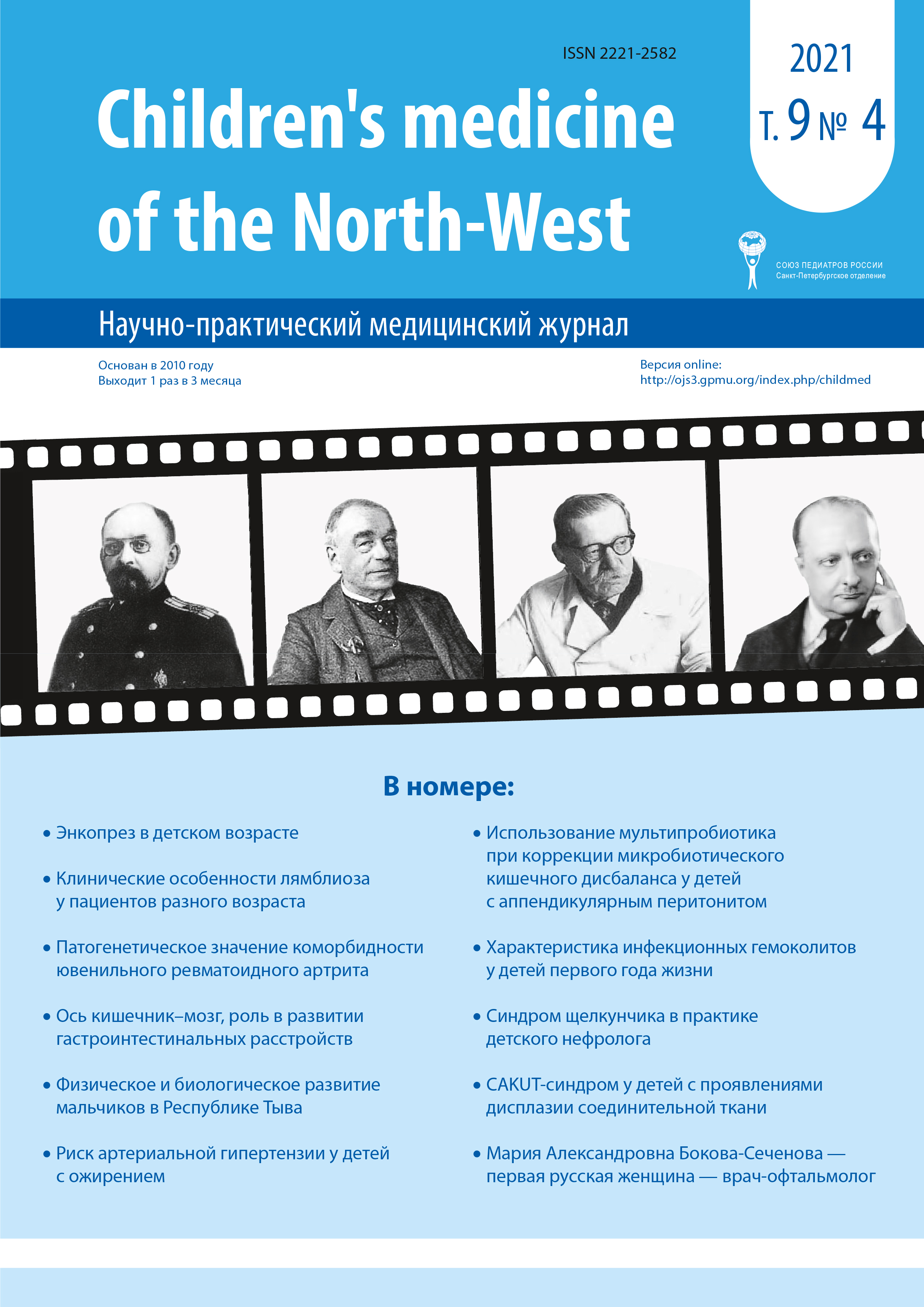EFFECT OF MULTIPROBIOTIC USE ON CORRECTION OF MICROBIOTIC INTESTINAL IMBALANCE IN CHILDREN WITH APPENDICULAR PERITONITIS AT THE LATE POSTOPERATIVE PERIOD
Abstract
The article examines the effectiveness of using a multiprobiotic in the complex treatment of children with appendicular peritonitis at the stage of the late postoperative period in relation to the correction of small intestinal bacterial overgrowth syndrome. Materials and methods. 80 children who underwent surgery for widespread appendicular peritonitis were examined. At the late postoperative period stage all children were divided into two groups of 40 people each (the main group and the comparison group). After discharge from the hospital, the patients of the main group were received a multiprobiotic course for 1 month. The patients of the comparison group were not received an additional medications. In all patients, initially, 1 and 6 months after discharge from the hospital, the prevalence of the small intestinal bacterial overgrowth syndrome was studied using a hydrogen breath test with a lactulose load. Results of the study. After one month, the small intestinal bacterial overgrowth syndrome was detected in 25.0±6.8% of main group patients, which was statistically significant (p<0.001) less than 80.0±6.3% of comparison group patients. 6 months after discharge from the hospital, the small intestinal bacterial overgrowth syndrome was detected in 32.5±7.4% of main group patients, which was statistically significant (p<0.01) less than 70.0±7.2% of comparison group patients. Conclusions. The inclusion of a multiprobiotic in the therapy of children operated on for appendicular peritonitis at the stage of the late postoperative period makes it possible to eliminate the small intestinal bacterial overgrowth syndrome in patients.



